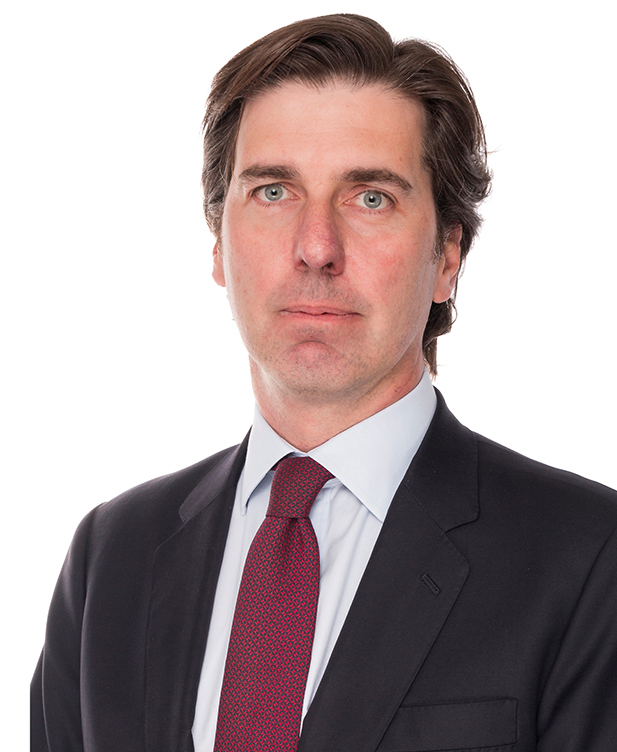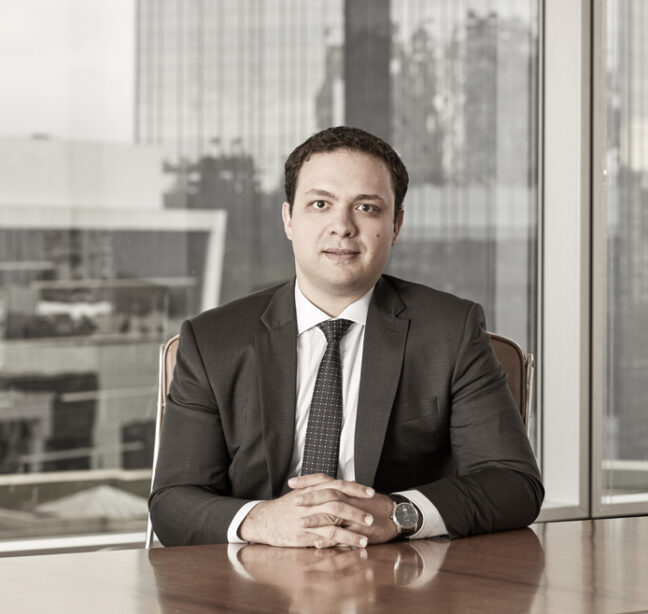Content available in English and Portuguese (scroll down)
TTR DealMaker Q&A with Tozzini Freire Partners Marcela Waksman Ejnisman and Maria Elisa Gualandi Verri

Co-head of TozziniFreire’s Corporate/M&A practice, Marcela concentrates her work on the telecommunications and technology, intellectual property and privacy and entertainment industries. She has advised clients on numerous transactions, including mergers and acquisitions, joint ventures, and corporate restructurings. Her portfolio includes important clients such as Sinqia, Linx and Jellyfish Brasil.
Member of TozziniFreire’s Executive Committee, co-head of the firm’s Corporate/M&A practice and of the Corporate Social Investment area, Maria Elisa has a long valued multidisciplinary approach to legal practice. She has distinguished herself as a valuable advisor to clients on contractual and corporate matters, using her breadth of knowledge to perform her leading work in contracts, the acquisitions, and sales of companies, and in the overall management of clients’ legal affairs.
TTR: How would you describe the current M&A situation and outlook in Brazil?
T.F.: The fast reaction to social distancing measures and adaptation to the virtual solutions that emerged, made the transactional market suffer much less than expected due to the COVID-19 pandemic. The change to a predominantly virtual scenario did not directly affect negotiations, on the contrary, in many cases the work dynamics became more agile with more objective and efficient meetings. Several drafting sessions and transaction closures took place online and worked very well. The digital signature platforms ensured the security of closing operations even if not in person.
Several clients also saw the opportunities that arose in the midst of the crisis and some sectors such as healthcare, education and technology even warmed up more. Thus, in terms of performance in the Brazilian transactional world, we can say that despite the fact that we are experiencing a moment of caution, the market pace remained positive and on an ascending curve.
TTR: TozziniFreire Advogados is one of the main advisors on M&A in the Brazilian health sector, according to TTR’s legal ranking. How do you evaluate the sector’s growth in 2021 and what are the perspectives in 2022?
T.F.: The healthcare sector as a whole is still very fragmented and there is plenty of room for consolidation. Before 2020, the sector was already showing signs of warming up and was on a wave of consistent growth. With the pandemic, this scenario escalated, and our expectation is that it will be a trend that will continue in the short and medium term, at least.
The operations in which we recently worked, involving pharmaceutical industries, hospitals and other players of the sector, are a reflection of this moment, which extends to all its segments, such as health plans and telemedicine.
TTR: What would be another two sectors that could offer the greatest opportunities in Brazil for international investors in 2021 and why?
T.F.: In addition to the exponential growth registered before the COVID-19 pandemic, the technology sector was further boosted by social distancing. Technology companies bolstered the M&A agenda in the first quarter of 2021, leading the ranking of transactions, and indicating the resumption of growth in this market. We have been observing the evolution of several companies through constant acquisitions and our expectation is that this scenario continues for a long time.
The educational sector, despite being hit by the crisis, is also growing, especially in relation to edtechs. Even after the pandemic, we expect the sector to strengthen even more with the use of digital technologies. Like the healthcare industry, it is also very dispersed, but we are already seeing that some groups, through consolidation, are becoming large companies leading the sector.
As regards to the infrastructure sector, we highlight the energy market as one of the busiest, especially amid the increase in the value of energy and the search for new forms of energy that reduce its cost. After the approval of the regulatory framework for mini-generation and distributed micro-generation, under discussion in Congress, the forecast is for greater acceleration of this market.
TTR: What’s your outlook for the Private Equity and Venture Capital market in 2021 in the medium and long-term?
T.F.: The players in this market are always on the lookout for opportunities, and for this reason we expect that in the medium term they will remain in constant movement, as it has been during the pandemic. The technology sector is once again the main character, breaking records in investments by venture capital and private equity funds.
TTR: Q What were the main challenges of the M&A operation in Brazil throughout TozziniFreire Advogados’ 45-year history? What can we expect in the long – term?
T.F.: Over the 45 years of the firm, we have gone through economic and political crises, such as the so-called lost decade, after the end of the Military Dictatorship, and the devaluation of the Real. At the same time, we had great opportunities and prominence in the 1990s, with the first wave of privatization of infrastructure, and also in the greatest opening of the market in the past decades. The scenario was unstable, but it never deeply affected foreign investments in Brazil. Thanks to the strength of our institutions, M&A operations have increasingly become a way of expanding the business. Over this period, national entrepreneurs also gained a lot of strength in mergers and acquisitions, fulfilling a role as important as that of international investors and boosting the growth of many sectors.
Several changes have taken place since then, and today, even in the midst of a health, political and economic crisis, the transactional market remains in constant evolution.
This scenario was directly reflected in TozziniFreire’s M&A group, which has grown stronger over the years. We recently hired four new partners who are part of a highly prepared team to meet new emerging opportunities. We also registered an increase in transactions assisted by our team in the first half of 2021, compared to the same period last year. For the coming years, we will continue with our growth strategy and with the hope of an increasingly positive, challenging and innovative market.
Portuguese version
Corresponsável pela prática de Societário e Fusões e Aquisições de TozziniFreire, Marcela concentra seu trabalho nas indústrias de telecomunicações e de tecnologia, propriedade intelectual e privacidade e entretenimento. Presta assessoria nas mais diversas transações, incluindo fusões e aquisições, joint ventures e reestruturações de empresas. Sua cartela de clientes inclui nomes importantes como: Sinqia, Linx e Jellyfish Brasil.
Membro do Comitê Executivo de TozziniFreire, corresponsável pela prática Societária e de Fusões e Aquisições do escritório e pela área de Investimento Social Corporativo, Maria Elisa cultivou sempre uma visão multidisciplinar do direito, destacando-se na área contratual – conhecimento que vem utilizando em aquisições e vendas de empresas. Também possui ampla experiência na coordenação de assessoria a empresas em geral, notadamente em assuntos contratuais e societários.
TTR: Como você descreveria a situação atual dos players no mercado transacional no Brasil nesta “Nova Realidade”?
T.F.: A rápida reação às medidas de distanciamento social e adaptação às soluções virtuais que surgiram fez com que o mercado transacional sofresse muito menos do que o esperado pela pandemia de COVID-19. A mudança para um cenário predominantemente virtual não afetou diretamente as negociações, pelo contrário, em muitos casos a dinâmica de trabalho ficou mais ágil com reuniões mais objetivas e eficientes. Vários drafting sessions e fechamentos de operação aconteceram online e funcionaram muito bem. As plataformas de assinatura digital garantiram a segurança de fechamento de operações, mesmo que não presencialmente.
Vários clientes também enxergaram as oportunidades que surgiram em meio à crise, e alguns setores, como saúde, educação e tecnologia, inclusive se aqueceram mais. Dessa forma, em termos da atuação no mundo transacional brasileiro, podemos afirmar que, apesar de estarmos vivenciando um momento de cautela, o ritmo do mercado se manteve positivo e em curva ascendente.
TTR: TozziniFreire Advogados é um dos principais assessores de M&A do setor de saúde do Brasil de acordo com o ranking jurídico do TTR. Como você avalia o crescimento do setor em 2021 e quais as perspectivas em 2022?
T.F.: O setor de saúde como um todo ainda é muito pulverizado e há bastante espaço para consolidações. Antes de 2020, o setor já sinalizava aquecimento e estava em uma onda de crescimento consistente. Com a pandemia, esse cenário foi potencializado, e nossa expectativa é que seja uma tendência que vai se manter a curto e médio prazo, pelo menos.
As recentes operações em que trabalhamos, envolvendo indústrias farmacêuticas, hospitais e outros participantes do setor, são um reflexo desse momento, que se estende a todos os players do setor, como planos de saúde e telemedicina.
TTR: Quais seriam os outros dois setores que poderiam oferecer as maiores oportunidades no Brasil para investidores internacionais em 2021 e por quê?
T.F.: Além do crescimento exponencial registrado antes da pandemia de COVID-19, o setor de tecnologia foi potencializado ainda mais pelo distanciamento social. As empresas de tecnologia impulsionaram a agenda de M&A no primeiro trimestre de 2021, liderando o ranking de transações e indicando a retomada do crescimento desse mercado. Temos acompanhado a evolução de diversas empresas por meio de aquisições constantes e nossa expectativa é que esse cenário permaneça por um bom tempo.
O setor educacional, apesar de atingido pela crise, também registra crescimento, principalmente em relação às edtechs. Mesmo após a pandemia, a tendência é que o setor se fortaleça ainda mais com o uso de tecnologias digitais. Assim como o setor de saúde, também é bastante pulverizado, mas já vemos que alguns grupos, por meio de consolidação, estão se tornado empresas de grande porte e com liderança no setor.
Em relação ao setor de infraestrutura, destacamos o mercado de energia como um dos mais movimentados, principalmente em meio ao aumento do valor da energia e da busca por novas formas de energia que diminuam seu custo. Após a aprovação de marco regulatório da minigeração e microgeração distribuída, em discussão no Congresso, a previsão é de maior aceleração desse mercado.
TTR: Qual é a sua perspectiva para o Private Equity e Venture Capital em médio e longo prazo?
T.F.: Os players desse mercado estão sempre atentos às oportunidades, e por esse motivo temos a perspectiva de que a médio prazo se mantenham em movimento constante, assim como vem acontecendo durante a pandemia. O setor de tecnologia é mais uma vez o protagonista, batendo recordes de investimentos por venture capital e private equity.
TTR: Quais foram os principais desafios da operação de M&A no Brasil ao longo dos 45 anos de história do TozziniFreire Advogados? O que podemos esperar a longo prazo?
T.F.: Ao longo dos 45 anos do escritório, passamos por crises econômicas e políticas, como a chamada década perdida, após o final da Ditadura Militar, e a desvalorização do Real. Ao mesmo tempo, tivemos grandes oportunidades e protagonismo na década de 90, com a primeira onda de privatização da infraestrutura, e também na maior abertura do mercado das últimas décadas. O cenário era instável, mas nunca afetou profundamente os investimentos estrangeiros no Brasil. Graças à solidez de nossas instituições, as operações de M&A se tornaram, cada vez mais, uma forma de expansão dos negócios. Os empreendedores nacionais também ganharam ao longo deste período muita força nas fusões e aquisições, preenchendo um papel tão importante quanto o de investidores internacionais e potencializando o crescimento de muitos setores.
Diversas mudanças ocorreram desde então e, hoje, mesmo em meio a uma crise sanitária, política e econômica, o mercado transacional permanece em constante evolução.
Esse aquecimento refletiu diretamente no grupo de M&A de TozziniFreire, que se fortaleceu cada vez mais ao longo dos anos. Recentemente contratamos quatro novos sócios que integram um time altamente preparado para atender às novas oportunidades emergentes. Também registramos um aumento nas transações assistidas pela nossa equipe no primeiro semestre de 2021, em relação ao mesmo período do ano passado. Para os próximos anos, continuaremos com nossa estratégia de crescimento e temos esperança em um cenário cada vez mais positivo, desafiador e inovador.








